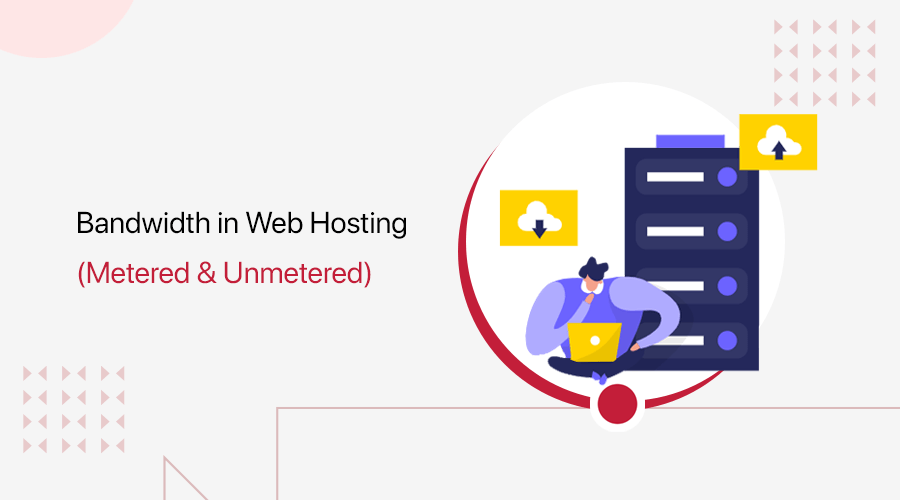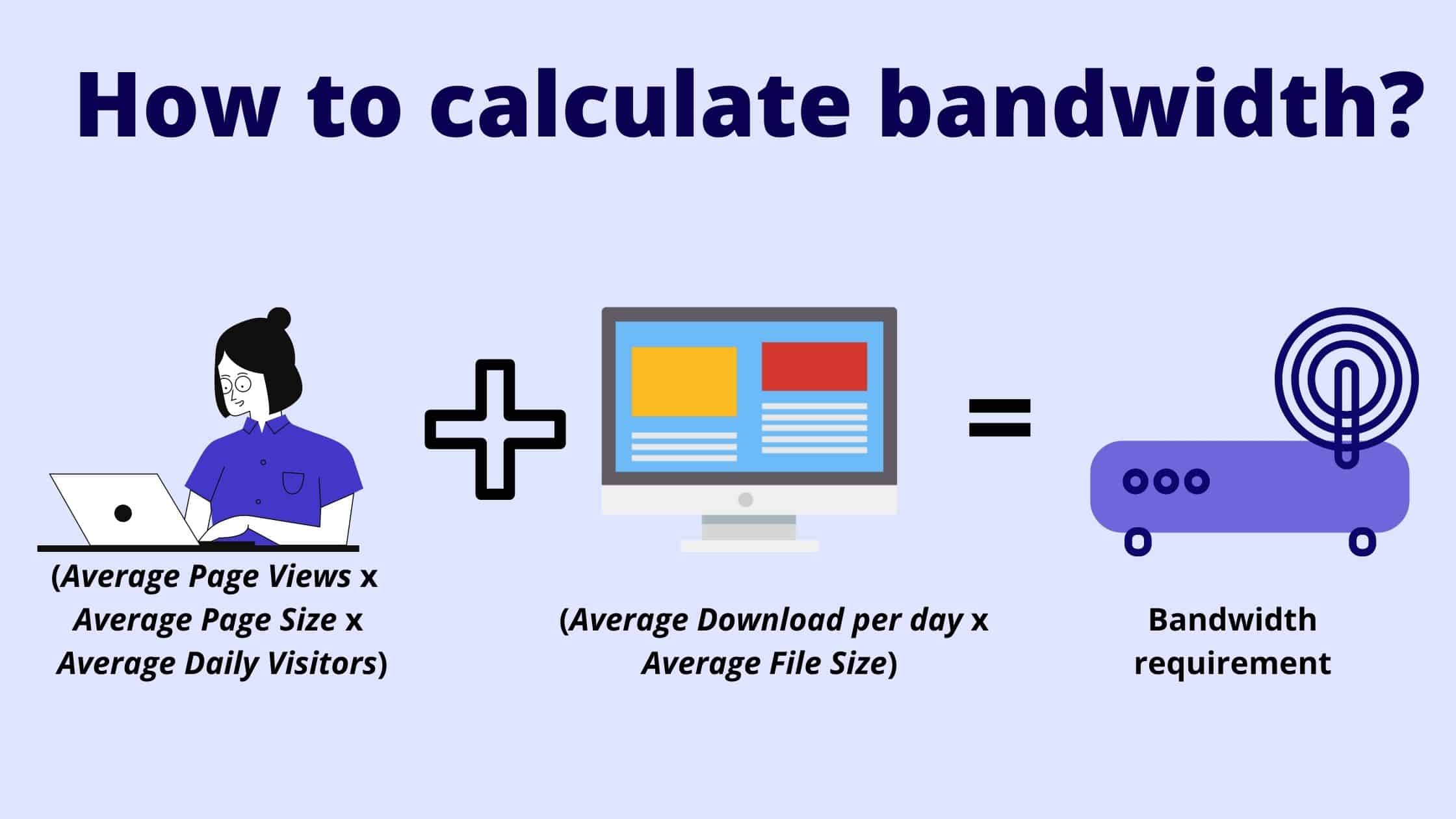Bandwidth in web hosting is the data transfer rate. It measures the amount of data your website can send and receive.
Understanding bandwidth is crucial for a smooth website experience. It affects how quickly users can access your site and how well it handles traffic. Think of it as a highway. More lanes mean more cars can travel without traffic jams.
Similarly, more bandwidth means your site can handle more visitors at once. Without enough bandwidth, your site may slow down or crash. This can frustrate visitors and hurt your online presence. In this blog, we will explore what bandwidth is, why it matters, and how to choose the right amount for your website needs.
Introduction To Bandwidth
Welcome to our blog! Today, we will discuss bandwidth in web hosting. Understanding bandwidth is crucial for your website’s performance. It determines how much data your site can transfer to users.
Imagine a water pipe. The larger the pipe, the more water can flow through it. Similarly, the more bandwidth you have, the more data your site can handle. This is essential for providing a smooth user experience.
Importance Of Bandwidth
Bandwidth affects your website’s speed and reliability. If your site has low bandwidth, it may load slowly. This can frustrate visitors and lead to higher bounce rates.
High bandwidth ensures that more users can access your site at the same time. This is especially important for high-traffic websites. It helps in delivering content without delays. Also, it allows for faster loading times, improving user satisfaction.
In short, having adequate bandwidth is key to maintaining a responsive and user-friendly website.
Common Misconceptions
Many people think bandwidth and data transfer are the same. They are related but different. Bandwidth is the maximum data your site can handle at once. Data transfer is the total amount of data your site sends over a period.
Another misconception is that more bandwidth always means better performance. This is not entirely true. While more bandwidth can help, other factors like server quality and website optimization also play roles.
Lastly, some believe that unlimited bandwidth means infinite data. Unlimited bandwidth plans often have a fair usage policy. This means there are still limits to prevent abuse.
Bandwidth Basics
Understanding bandwidth is essential for anyone using web hosting services. It affects how your website performs and handles traffic. Let’s dive into the basics of bandwidth to grasp its importance better.
Definition Of Bandwidth
Bandwidth refers to the amount of data transferred between your website and users. It’s like a highway for your web traffic. The wider the highway, the more cars can pass through. Similarly, higher bandwidth means more data can move swiftly.
It’s crucial for a smooth user experience. High bandwidth ensures your site loads quickly. Low bandwidth can lead to slow loading times, frustrating users. Thus, knowing your bandwidth needs helps you choose the right hosting plan.
Measurement Units
Bandwidth is measured in bits per second (bps). The common units are kilobits per second (Kbps), megabits per second (Mbps), and gigabits per second (Gbps). For example, 1 Mbps means 1 million bits per second.
Higher numbers indicate faster data transfer rates. This is vital for websites with heavy traffic or large files. Understanding these units helps you evaluate your hosting plan’s capabilities.
Role In Web Hosting
Bandwidth plays a crucial role in web hosting. It determines the amount of data that can be transferred between your website and its users. Understanding its role can help you manage your website more effectively and ensure a smooth experience for visitors.
Impact On Website Performance
Website performance heavily depends on bandwidth. Higher bandwidth allows faster data transfer, leading to quicker page loads. This improves user experience and can reduce bounce rates.
Conversely, low bandwidth can slow down your site. Users may experience delays, which can frustrate them and cause them to leave. Ensuring you have sufficient bandwidth is essential for maintaining a responsive website.
Bandwidth And Traffic
Bandwidth also influences how much traffic your website can handle. High traffic requires more bandwidth to accommodate numerous visitors simultaneously. If your bandwidth is low, your website may crash under heavy traffic.
Monitoring your bandwidth usage helps you plan for growth. It ensures your site remains accessible even during traffic spikes. Choosing a hosting plan with adequate bandwidth is vital for a robust online presence.

Credit: www.hostitsmart.com
Bandwidth Allocation
Bandwidth Allocation is a crucial aspect of web hosting that affects your website’s performance. It determines how much data your website can transfer to and from visitors over a specific period. Proper bandwidth allocation ensures smooth user experience and prevents website slowdowns or crashes.
Shared Vs. Dedicated Bandwidth
Web hosting providers offer two main types of bandwidth: shared and dedicated. Each has its own advantages and drawbacks.
| Type | Description | Pros | Cons |
|---|---|---|---|
| Shared Bandwidth | Your website shares bandwidth with other sites on the same server. |
|
|
| Dedicated Bandwidth | Your website gets its own, exclusive bandwidth. |
|
|
How Hosting Providers Allocate Bandwidth
Hosting providers allocate bandwidth based on your hosting plan. Here’s how it works:
- Shared Hosting Plans: Bandwidth is pooled among multiple users. Each website gets a portion of the total available bandwidth. During peak times, performance may drop.
- VPS Hosting Plans: A Virtual Private Server (VPS) offers more bandwidth than shared hosting. Resources are divided among fewer users, providing better performance.
- Dedicated Hosting Plans: These plans offer the highest level of bandwidth. Your website has exclusive access to all available resources. Ideal for large, high-traffic websites.
Understanding these allocation methods helps you choose the right plan for your needs. It ensures your website runs smoothly without unexpected slowdowns.
Factors Affecting Bandwidth Needs
Understanding bandwidth needs is crucial in web hosting. Various factors influence how much bandwidth a website requires. Identifying these factors can help optimize performance and avoid unnecessary costs. Let’s explore key elements that affect bandwidth needs.
Website Size And Content
The size of your website directly impacts bandwidth requirements. Larger websites need more bandwidth. This includes high-quality images, videos, and downloadable files. Such content consumes significant bandwidth. Regular updates or adding new pages also increase bandwidth needs. Optimizing images and using efficient file formats can help manage this.
Visitor Traffic Patterns
Visitor traffic patterns play a critical role in bandwidth consumption. High traffic websites use more bandwidth. Peak times with heavy visitor influx demand more bandwidth. Consistent traffic throughout the day requires a stable bandwidth supply. Unexpected traffic spikes can strain resources. Monitoring traffic patterns helps in planning and allocating bandwidth efficiently.
Managing Bandwidth Usage
Managing bandwidth usage is crucial for maintaining a smooth website experience. Poor bandwidth management can lead to slow load times and frustrated users. To ensure optimal performance, consider these strategies.
Monitoring Tools
Use monitoring tools to track your bandwidth usage. These tools provide real-time data and historical trends. They help identify peak usage times and potential issues. Popular options include Google Analytics and AWStats. Choose a tool that suits your needs and budget.
Optimizing Content Delivery
Optimize your content to reduce bandwidth usage. Compress images and videos to smaller sizes. Use formats like JPEG for images and MP4 for videos. Minimize the use of large files on your website. Consider using a Content Delivery Network (CDN) to distribute content efficiently. CDNs cache your content on multiple servers worldwide. This reduces the load on your main server.
Bandwidth Limits And Overages
In web hosting, bandwidth refers to the amount of data transferred between your website and its users. Understanding the limitations and implications of exceeding these limits is crucial. This section covers bandwidth limits and overages.
Understanding Limits
Every web hosting plan includes a specific bandwidth limit. This limit dictates the maximum amount of data your site can transfer in a given period.
For example, a hosting plan may offer 10GB of bandwidth per month. If your website’s data transfer exceeds this, you may face overages or throttling.
Some hosting providers offer unmetered bandwidth, meaning they do not track data transfer. Yet, even unmetered plans have fair usage policies. Exceeding these can lead to similar consequences.
Consequences Of Overages
Exceeding your bandwidth limit can have several outcomes. These may affect both your website’s performance and your finances.
Here are some common consequences:
- Additional Charges: Hosting providers may charge extra fees for exceeding bandwidth limits.
- Website Downtime: Your site may go offline until the next billing cycle.
- Throttling: Providers may reduce your site’s speed to limit data transfer.
Managing your site’s bandwidth usage is essential to avoid these issues. Regular monitoring and optimization can help keep your website running smoothly.

Credit: sitenerdy.com
Choosing The Right Hosting Plan
Choosing the right hosting plan is crucial for your website’s performance. A key factor is bandwidth. Bandwidth affects how fast your site loads and handles traffic. Understanding your needs helps you pick the best plan.
Evaluating Bandwidth Requirements
Evaluate your bandwidth needs by considering several factors:
- Website Traffic: Higher traffic means more bandwidth. Use analytics to measure traffic.
- Content Type: Images, videos, and downloads need more bandwidth.
- User Interaction: More user actions like form submissions increase bandwidth usage.
Analyze these aspects to understand your bandwidth needs better.
Tips For Selection
Here are some tips to help you choose the right hosting plan:
- Compare Plans: Compare different hosting plans. Look at bandwidth limits and scalability.
- Read Reviews: Customer reviews can give insights into performance and support.
- Check Uptime: Ensure the provider offers high uptime guarantees.
- Look for Scalability: Choose a plan that grows with your website.
- Consider Support: Reliable customer support is crucial. Look for 24/7 support.
These tips will help you make an informed decision.

Credit: kripeshadwani.com
Frequently Asked Questions
What Is Bandwidth In Web Hosting?
Bandwidth in web hosting is the amount of data transferred between your website and visitors. It determines how much traffic your site can handle. Higher bandwidth allows more data transfer, ensuring a smoother experience for users.
Why Is Bandwidth Important For Websites?
Bandwidth is crucial because it impacts your website’s performance. Insufficient bandwidth can cause slow loading times and interruptions. Adequate bandwidth ensures smooth operation, better user experience, and can handle higher traffic volumes.
How Is Bandwidth Measured In Web Hosting?
Bandwidth is measured in bits per second (bps), commonly displayed as megabits (Mbps) or gigabits (Gbps) per second. It represents the data transfer rate. Higher values indicate faster data transfer and better performance.
Can I Increase My Web Hosting Bandwidth?
Yes, you can increase your web hosting bandwidth by upgrading your hosting plan. Many web hosts offer scalable plans. This allows you to adjust bandwidth according to your website’s needs.
Conclusion
Understanding bandwidth is crucial for web hosting. It affects your site’s performance. High bandwidth means faster load times. Visitors enjoy a smoother experience. Low bandwidth can slow down your site. This frustrates users. Choose a hosting plan with sufficient bandwidth.
Monitor your usage regularly. Upgrade if your needs grow. Proper bandwidth management ensures a better website. Happy visitors mean better engagement. Your website’s success depends on it. So, invest wisely in the right bandwidth.










